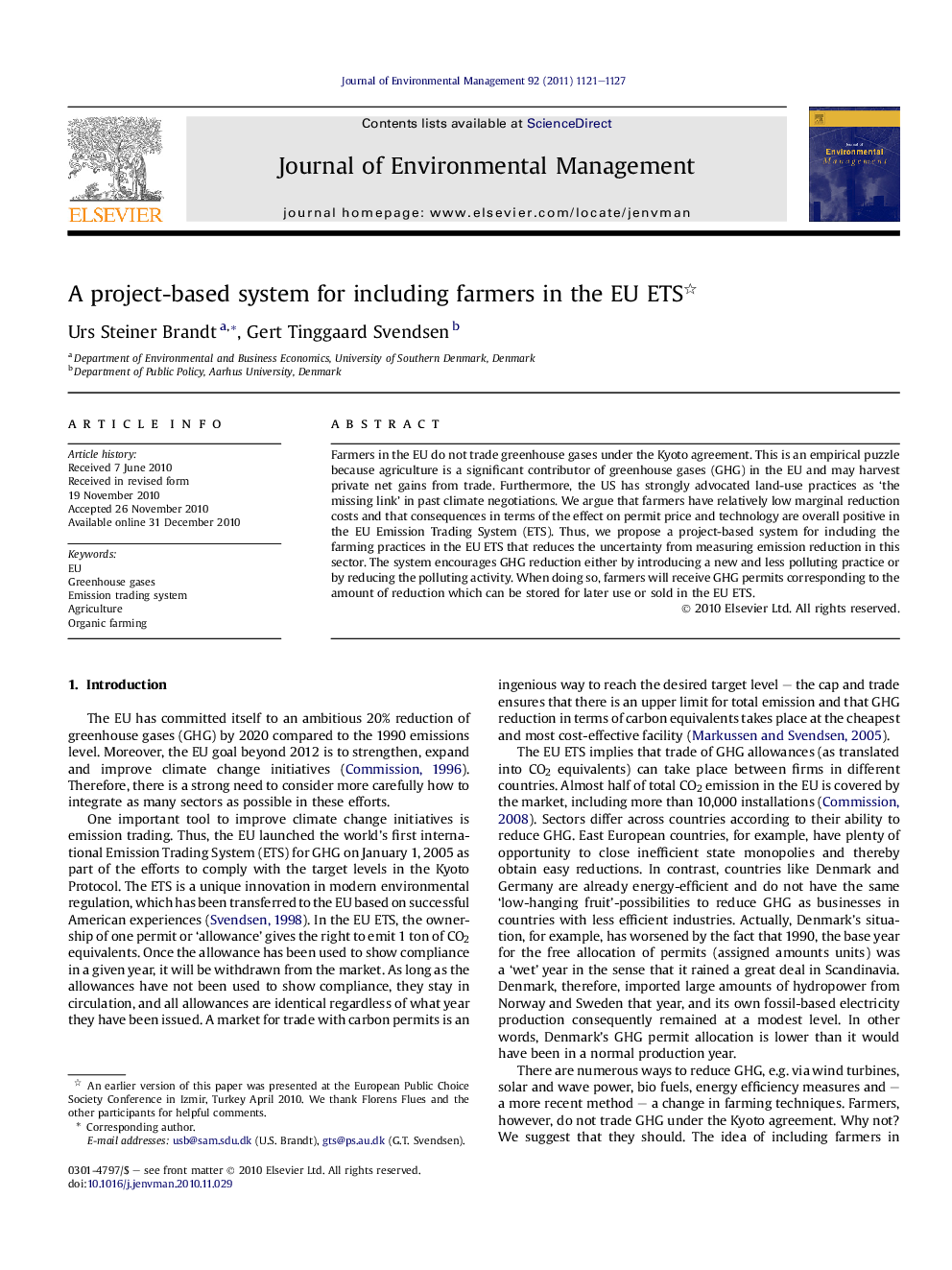| Article ID | Journal | Published Year | Pages | File Type |
|---|---|---|---|---|
| 10505580 | Journal of Environmental Management | 2011 | 7 Pages |
Abstract
Farmers in the EU do not trade greenhouse gases under the Kyoto agreement. This is an empirical puzzle because agriculture is a significant contributor of greenhouse gases (GHG) in the EU and may harvest private net gains from trade. Furthermore, the US has strongly advocated land-use practices as 'the missing link' in past climate negotiations. We argue that farmers have relatively low marginal reduction costs and that consequences in terms of the effect on permit price and technology are overall positive in the EU Emission Trading System (ETS). Thus, we propose a project-based system for including the farming practices in the EU ETS that reduces the uncertainty from measuring emission reduction in this sector. The system encourages GHG reduction either by introducing a new and less polluting practice or by reducing the polluting activity. When doing so, farmers will receive GHG permits corresponding to the amount of reduction which can be stored for later use or sold in the EU ETS.
Related Topics
Physical Sciences and Engineering
Energy
Renewable Energy, Sustainability and the Environment
Authors
Urs Steiner Brandt, Gert Tinggaard Svendsen,
